- Home
- Catherine Coulter
The Countess
The Countess Read online
Table of Contents
Chapter One
Chapter Two
Chapter Three
Chapter Four
Chapter Five
Chapter Six
Chapter Seven
Chapter Eight
Chapter Nine
Chapter Ten
Chapter Eleven
Chapter Twelve
Chapter Thirteen
Chapter Fourteen
Chapter Fifteen
Chapter Sixteen
Chapter Seventeen
Chapter Eighteen
Chapter Nineteen
Chapter Twenty
Chapter Twenty-one
Chapter Twenty-two
Chapter Twenty-three
Chapter Twenty-four
Chapter Twenty-five
Chapter Twenty-six
Chapter Twenty-seven
Chapter Twenty-eight
Chapter Twenty-nine
Chapter Thirty
Chapter Thirty-one
Chapter Thirty-two
Epilogue
This is a work of fiction. Names, characters, places, and incidents are either the product of the author’s imagination or are used fictitiously, and any resemblance to actual persons, living or dead, business establishments, events or locales is entirely coincidental.
The Countess
A SIGNET Book / published by arrangement with the author
All rights reserved.
Copyright © 1999 by Catherine Coulter
This book may not be reproduced in whole or part, by mimeograph or any other means, without permission. Making or distributing electronic copies of this book constitutes copyright infringement and could subject the infringer to criminal and civil liability.
For information address:
The Berkley Publishing Group, a division of Penguin Putnam Inc.,
375 Hudson Street, New York, New York 10014.
The Penguin Putnam Inc. World Wide Web site address is http://www.penguinputnam.com
ISBN: 978-1-1012-0920-2
A SIGNET BOOK®
SIGNET Books first published by The Signet Publishing Group, a member of Penguin Putnam Inc.,
375 Hudson Street, New York, New York 10014.
SIGNET and the “S” design are trademarks belonging to Penguin Putnam Inc.
Electronic edition: February 2002
CSABA—A Real Winner
Chapter One
Of course I didn’t know who he was the first time I saw him. Nor did I really care who he was—not at first. It was only three weeks after I’d buried my grandfather. My cousin Peter, who had miraculously survived Waterloo unscathed, except for his soul, he wrote me, had been unable to come home from Paris until the French, who, he always said, lived in a constant state of overwrought emotion, had accepted Louis XVIII, their rightful, albeit idiot, of a king.
At the moment, unlike the French, I didn’t feel much of anything.
Until I saw him.
I was in the park walking George—my Dandie Dinmont terrier, whom some people believed to be ugly as a devil’s familiar on a bad day—oblivious of all the beautifully dressed people driving around in their landaus, riding their prime horseflesh, or simply walking, as I was. George and I were both silent, George out of habit, as there had been little else but silence since Grandfather had died. He was silent even when I picked up a small tree branch and threw it a good twenty feet away for him to fetch, an activity that usually sent him barking hysterically, leaping and bounding about until he clamped his jaws around the wild prey he’d captured and wrestled it to the ground. He was silent in his chase. He managed to get the branch, but it was at a cost.
The man beat him to it, picking up the branch, eyeing George, then giving my dog a blinding smile even as he threw it a good thirty feet. He stood there, hands on hips, watching George, again silent, run so fast his runty legs were a blur. Instead of bringing his beloved mistress—namely me—the branch, George trotted back to the man, tail high and wagging as steady as a metronome, and deposited the branch at his booted feet.
“George,” I said, too loudly, “come away now. You know that you are the king of dogs. You have the silkiest topknot in creation. God looks down upon you daily and is very pleased. Come along. I don’t want anyone to steal you.”
“It’s true he is a magnificent animal,” the man called out, and I knew sarcasm when it punched me in the nose. “Yes, he is blessed with an amazing presence, but I swear I am not thinking of his abduction for a possible ransom. You know, though, there may be some people, dolts naturally, who just might say that with all that mustard and red hair, someone would steal him in order to blind an enemy.”
“He doesn’t have mustard and red hair. Mustard on a dog is ridiculous. It’s more a fawn and a lovely reddish-brown sort of color.” I walked to where the man stood with my terrier. I thought George’s colors, particularly the fawn, even though one could perhaps call it, unkindly, sickly yellow, was splendid. At least there wasn’t all that much of it, since George wasn’t even twelve inches high and weighed only a bit over a stone. I frowned as I looked at him. His coat, a crispy mixture of both hard and soft hairs, needed a good brushing. I hadn’t groomed him for nearly a week. I’d been sunk too deep inside myself. I felt guilty for ignoring him.
As for George, the little traitor looked besotted. I came down on my knees and patted his large domed head, peeled back his silky hair, and looked him straight in his very large and intelligent eyes. “Listen to me, you miniature ingrate. I’m the one who feeds you, who walks you, who puts up with your snoring when you’ve eaten too much of Cook’s rabbit stew at night. I am going to walk away now, and I want you to come with me. Do you understand, George?”
George cocked his head at me, then turned to the man who had come down on his knees beside me, his damned eyes all fluid and adoring. The man said, as he tried for a disarming shrug, “Try not to be upset. You see, animals adore me. I was born with this gift, a sort of power, if you will. If I’m not careful, when I merely go for a walk on Bond Street all the frivolous little dogs the grand ladies are carrying about leap from their arms and chase after me. Dogs all over Piccadilly hunt me down. I try to ignore them. I always return them to their owners, but it just doesn’t stop. What am I to do?”
Humor, I thought, something that hadn’t been in my life for more weeks than I could now easily remember, hit me between the eyes. I smiled, unable not to. He smiled back at me, a beautiful white-toothed smile, took my hand, and helped me to my feet. He was big, too big, and too tall. Most of all, he was too young. He wasn’t just there—he overwhelmed. Immediately I took a step back, then another.
“George,” I said, growing more uncomfortable by the minute, “it’s time to see what Mrs. Dooley has made for our lunch. You know that on Tuesdays, she does something very special with bacon for you. Yes, bacon, fried down to its core, cooked so stiff you can bang it on the floor several times before it crumbles. Come along, now. You will ignore this gentleman. He may be nice to you here, where there’s an audience who can see how talented he is with you, but he doesn’t want you to catch his coattails in your teeth and pursue him home. Come along.”
I turned then and walked away, praying that George wouldn’t stay with the man, wagging his tail and cocking his very homely large head in that cute way he had, his ears at half-mast, that clearly said, “Do you really think she has bacon for my dinner?”
“Wait,” the man called after me, coming after me, his hand raised. “I don’t know who you are.” But I didn’t wait. I didn’t want him to know my name. Besides, why would he care? Didn’t he see that I was wearing deep mourning? Didn’t he know that being three feet away from him was too close? I even quickened my step. He was big and
tall, and he was too young, too strong. No, I thought, he couldn’t do anything here, in the middle of the park, with all these people about. I merely shook my head, but didn’t turn around. I nearly shouted with relief when I looked down to see George trotting beside me, his tongue lolling, carrying that branch in his mouth, his topknot flopping up and down. I did turn once I reached the corner.
The man wasn’t there.
Well, what did I expect? That he would unfold a pair of wings and fly after me? Snatch up both me and George and haul us off to a derelict old castle? No, he wasn’t a monster, he wasn’t bent on no good, but he was a man, I thought, too young, and too sure of himself. He was capable of things I couldn’t bear to think about. But he’d made me laugh. Imagine.
We went home, George to eat not bacon, but rabbit stew for dinner and snore all night, and I to read some soul-wrenching poetry by Coleridge—The death-fires danced at night—and wonder if he had written that line inside a cloud of opium.
I forgot the man.
The second time I saw him, I didn’t know who he was then either.
I was still swathed in black, and this time I even wore a black veil that half covered my face. When I came out of Hookham’s bookshop, he was just standing there holding an open umbrella, for it had begun to drizzle. He wore a smile on his tanned face, aimed at me.
I stopped in my tracks. I wanted to ask him what in heaven’s name he was doing here, beaming that brilliant smile at me, but what came out of my mouth was “How can you be so tanned when there hasn’t been a hint of sun in over two days?”
The smile smoothed out, but it was still there, lurking, waiting to become a laugh. I knew it. “At least this time you’ve looked at my face, something you refused to do that first day we met in the park. I have some Spanish blood in me, something my father abhorred, but he fell in love with my mother, Isabella Maria, you see, and so I was born. I wonder what he would think of me now, so unlike a pure-blooded Englishman, all pale and pink-cheeked, were he still alive.”
“Well, that does explain it,” I said, nodded to him, and added, “Good day,” and walked away. I wasn’t really surprised when the rain suddenly came down thick and hard, because, after all, it was England. What I hadn’t realized was that he was just behind me, the umbrella now held over my head.
Well, no hope for it. I turned again to face him. “Thank you for keeping me dry. What are you doing here?”
“I saw you buying a book inside. It’s raining. You don’t have an umbrella. I plan to protect you from the harsh elements, see you to wherever you wish to go, and thus earn your undying gratitude.”
“Excuse me,” I said, looking up at that iron-gray sky. “Harsh elements? Are you mad? This is England.”
And he threw back his head and laughed. He’d laughed at what I’d said. I tried to frown at him. He took a step closer, but I wasn’t worried. There were at least a dozen people either hurrying through the rain or setting their umbrellas over their heads.
“Where may I escort you, Miss—?”
I prepared to walk away again. He lightly touched his hand to my arm. I stopped dead, didn’t move, just stood there, waiting to see what he’d do.
“Very well,” he said slowly, eyeing me, and I knew he wanted to pull the veil off my face and stare me hard in the eyes. But, of course, he couldn’t. He said, “I had hoped that George would prove a suitable chaperon and acquaintance to vouch for me that first time in the park. But he wasn’t then, and he isn’t, unfortunately, here now. If not a dog, then I must find a human acquaintance to introduce us properly. You are obviously a lady of rigid social code. Do you see anyone you know and trust walking by who would perhaps pause to introduce us properly?”
The urge to laugh was strong, too strong. It was wrong to want to laugh now, very wrong. Grandfather had been dead only a month. No, no laughter.
I stared at his beautifully fashioned cravat, then worked my way up to his chin. He had a dimple in that stubborn-looking chin of his, and he was still smiling down at me, all white teeth and good humor. Since the rain was coming down at a fine clip now, I didn’t step away from him. I didn’t trust him an inch, nor that winsome smile of his, but I wasn’t stupid. I didn’t want to get soaked. “What do you want?”
“I want to know who you are so that I may meet your parents and all your siblings and the rest of your pets, and assure them that I’m not some devil-may-care rogue bent on ravishing their fair relative. I’d like take you for an ice at Gunthers. I’d like to take you riding. I’d like to make you laugh again.”
All that, I thought, and knew it was impossible. “I have only one sibling—actually he’s my cousin—and he’s in Paris. He would shoot your head off if he saw you bothering me like this.”
The man stopped smiling. “You mean bothering you as in keeping you from getting soaked down to your lovely slippers?”
“Well, not exactly.”
“That’s a beginning. Now, you’re in mourning, deep mourning. Does that mean that everyone you chance to meet must be long in the mouth and sigh and prepare to hand you a handkerchief?”
He was hard with muscle, just like Peter. I recognized that even though he was dressed elegantly in riding clothes, which meant, of course, tight buckskins, a frilled white shirt, a jacket no man could get into without a lot of help, and highly polished black boots that came to his knees. A fine figure of a man, my grandfather would have said. “I don’t want a handkerchief from you. As for you being long in the mouth, I don’t think you have it in you. Your mouth is too busy laughing.”
“Thank you.”
“I hadn’t really meant that as a compliment, it simply came out that way, by accident.”
“I know.”
“I am merely going about my business, not whining or begging for sympathy, or quivering my lips, and you just turn up like—”
“Please don’t make me a bad penny.”
“Very well. You just turn up like mad Uncle Albert, whom we keep locked in the third-floor attic, but who periodically bribes the tweeney and escapes.”
He laughed. He had a wonderful laugh, full and rich and heady. I hadn’t heard a laugh like that in far too long, truth be told. Not since the first time I saw him in the park. Had I inadvertently been funny? I hadn’t meant to be. Truly, there wasn’t any more humor in my life. When I had thrown the first clods of earth on Grandfather’s grave, I decided that twenty-one years of smiles and laughter were enough to grant any human being—more than enough. Grandfather had been in my life since I was ten, when my mother had died, my father had left the country, and Peter was at Eton. And Grandfather had loved to laugh. To my utter embarrassment, tears leaked out of my eyes and slid down my face.
They stuck to the wretched net veil. I pulled the veil back and wiped the back of my hand over my eyes. The tears kept coming. It was humiliating.
“I’m sorry,” the man said. “Very sorry. Whom did you lose?”
“My grandfather.”
“I lost mine five years ago. It was difficult. Actually, though, to be honest about it, it is my grandmother I miss the most of all of them. She loved me more than the sunsets in Ireland, she’d tell me. She was from Galway, you know, where she said the sunsets were the most beautiful in the world. Then, she said, she loved my grandfather so much, she willingly said good-bye to the sunsets, married him, and came to England. I never heard of her speak of the sunsets in Yorkshire.”
For a moment I thought he was going to cry. I didn’t want him to be nice, perhaps even to have an inkling about what I was feeling. I wanted him to be a man, and act like a man. That way I would know what he was without having to bother with his name. My tears dried up.
Then he offered me his left hand, since his right hand was still holding the umbrella over both of us. It was raining so hard it was as if we were enclosed in a small gray world, completely alone. I didn’t like that, but I did like the umbrella. I wasn’t even damp.
“No,” I said, looking at his hand, which didn�
�t even have a glove on it. Like his face, that hand was tanned. I wasn’t about to touch that hand. It was large, the fingers blunt and strong. “No,” I said again. “I don’t want to meet you. I live with my companion, Miss Crislock, and we have no visitors, since we’re in mourning.”
“How long do you anticipate this blacking out of life?”
“Blacking out of life? I’m doing no such thing. I loved my grandfather. I miss him. I am respecting his memory. Also, truth be told, I am rather angry at him for dying and leaving me here alone, to go on without him, to have no one anymore for me. He shouldn’t have died and left me. He was old, but he wasn’t ill. Everything was fine until he went riding and his horse slipped in a patch of mud. He shot off his horse’s back, hit his head against an oak tree, and fell unconscious. He never woke up. I protected him from the doctor, who wanted to bleed him every day, the idiot. I pleaded with Grandfather, I promised to let him eat all of Cook’s apple tarts he wanted, I begged him not to leave me, to open his eyes and smile at me—even curse at me, something he enjoyed as much as laughter—but he didn’t. I don’t wish to be reminded just yet that life simply goes swimmingly on its way despite the fact that I have lost the single most important person in my life through an idiotic accident, and no one else cares.”
“How can someone care if he can’t even find out your name?”
“Good day, sir.”
This time he didn’t follow me. I was soaked within seconds. The veil stuck to my face like a second skin, and itched like sticking plaster. Blacking out of life. What a ridiculous thing to say.
And cruel. He’d said it because I’d refused to tell him who I was. Men were hurtful. They thought only of themselves; the important things to them were those things that only they wanted and desired.
My grandfather had died. I was grieving. Who would not with a grandfather like him? I was not blacking out my life.
The third time I saw him I still had no idea who he was. He was speaking with a friend of my grandfather’s, Theodore, Lord Anston, a gentleman who still covered his bald head with a thick curling coal-black wig, wore knee breeches everywhere—and not just to Almack’s on Wednesday nights. He rode with his hounds in Hyde Park, chasing not foxes, but pretty ladies and their maids. My grandfather had once told me, laughing softly behind his hand, that Theo had even worn black satin knee breeches to a mill held out on Hounslow Heath. One of the fighters had been so startled at the sight that he’d dropped his hands for a moment and stared. His opponent had knocked him flat.

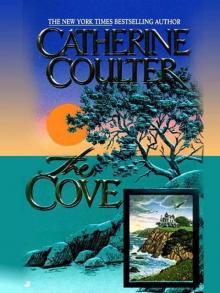 The Cove
The Cove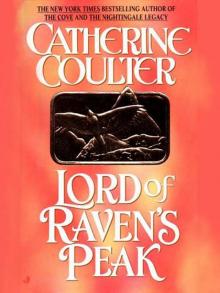 Lord of Raven's Peak
Lord of Raven's Peak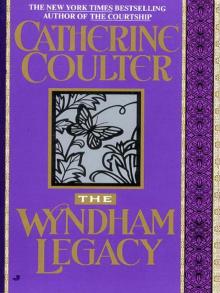 The Wyndham Legacy
The Wyndham Legacy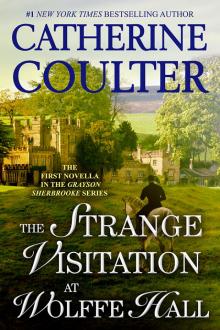 The Strange Visitation at Wolffe Hall
The Strange Visitation at Wolffe Hall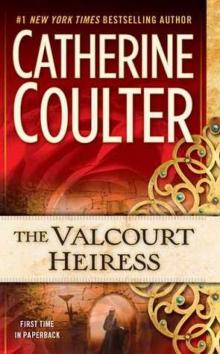 The Valcourt Heiress
The Valcourt Heiress Bombshell
Bombshell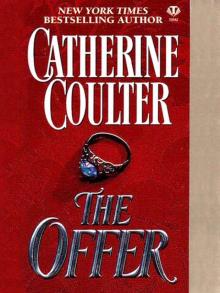 The Offer
The Offer The Edge
The Edge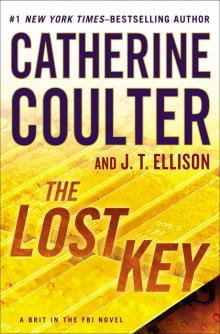 The Lost Key
The Lost Key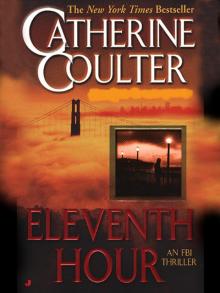 Eleventh Hour
Eleventh Hour Blindside
Blindside Devil's Daughter
Devil's Daughter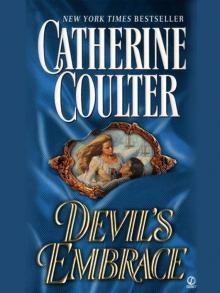 Devil's Embrace
Devil's Embrace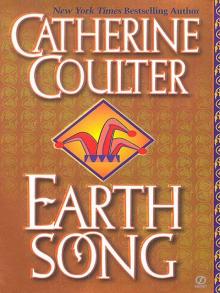 Earth Song
Earth Song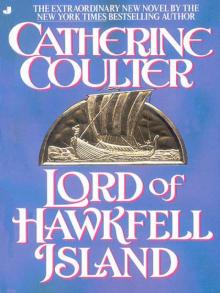 Lord of Hawkfell Island
Lord of Hawkfell Island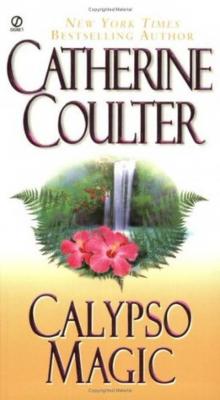 Calypso Magic
Calypso Magic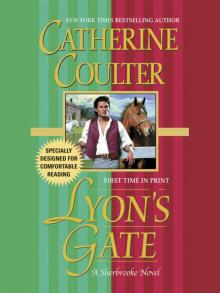 Lyon's Gate
Lyon's Gate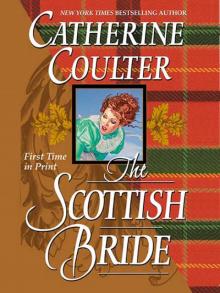 The Scottish Bride
The Scottish Bride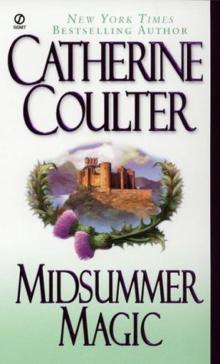 Midsummer Magic
Midsummer Magic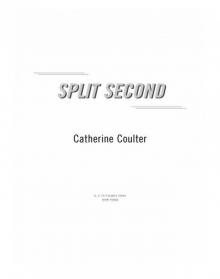 Split Second
Split Second Enigma
Enigma Blowout
Blowout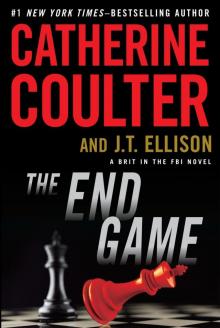 The End Game
The End Game Double Take
Double Take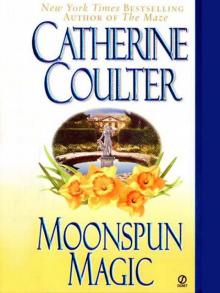 Moonspun Magic
Moonspun Magic The Courtship
The Courtship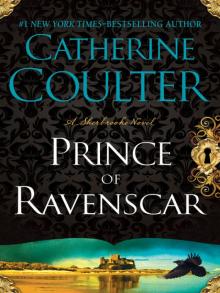 Prince of Ravenscar
Prince of Ravenscar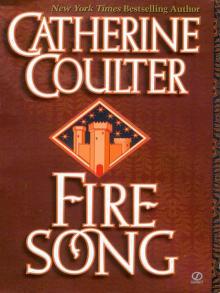 Fire Song
Fire Song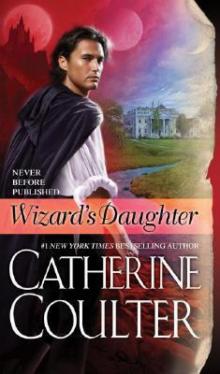 Wizard's Daughter
Wizard's Daughter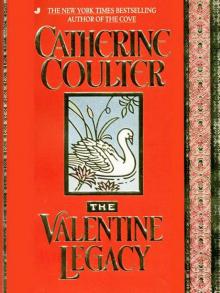 The Valentine Legacy
The Valentine Legacy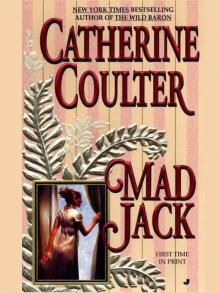 Mad Jack
Mad Jack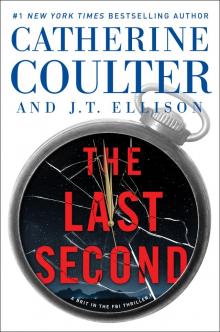 The Last Second
The Last Second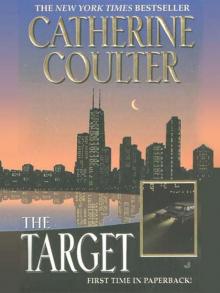 The Target
The Target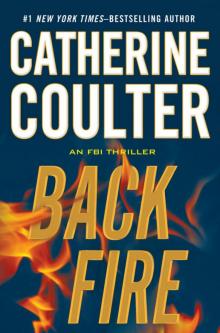 Backfire
Backfire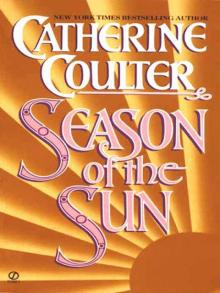 Season of the Sun
Season of the Sun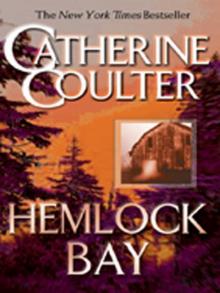 Hemlock Bay
Hemlock Bay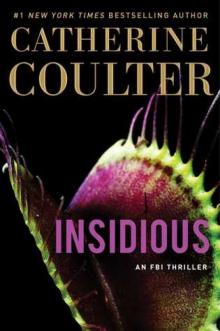 Insidious
Insidious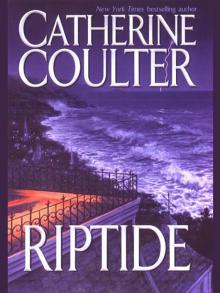 Riptide
Riptide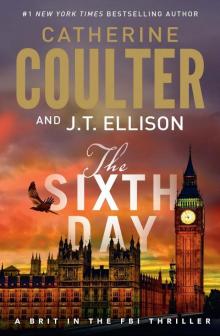 The Sixth Day
The Sixth Day Secret Song
Secret Song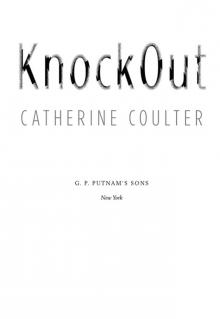 KnockOut
KnockOut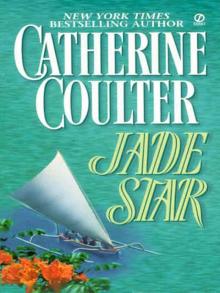 Jade Star
Jade Star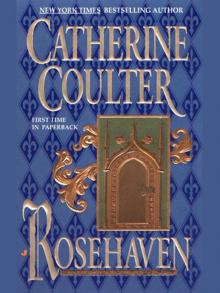 Rosehaven
Rosehaven The Hellion Bride
The Hellion Bride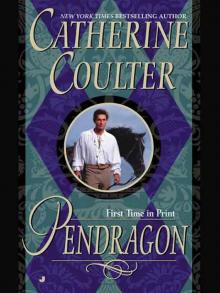 Pendragon
Pendragon Vortex
Vortex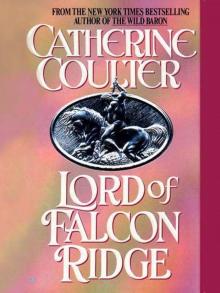 Lord of Falcon Ridge
Lord of Falcon Ridge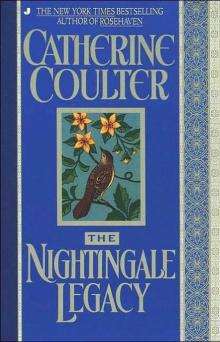 The Nightingale Legacy
The Nightingale Legacy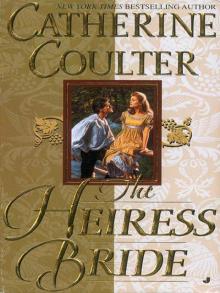 The Heiress Bride
The Heiress Bride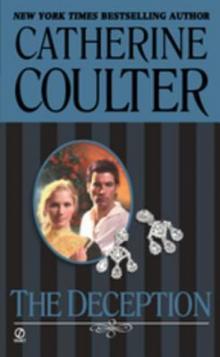 The Deception
The Deception The Maze
The Maze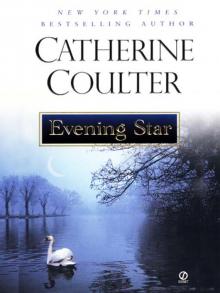 Evening Star
Evening Star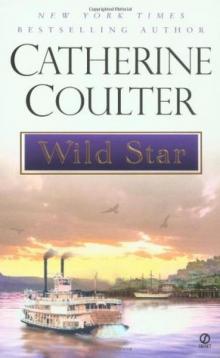 Wild Star
Wild Star The Final Cut
The Final Cut Paradox
Paradox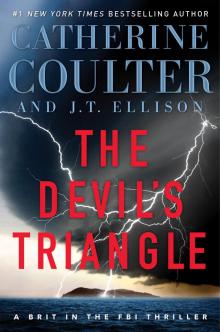 The Devil's Triangle
The Devil's Triangle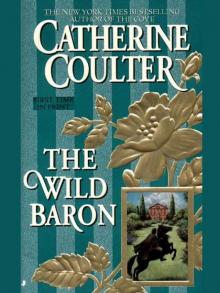 The Wild Baron
The Wild Baron Point Blank
Point Blank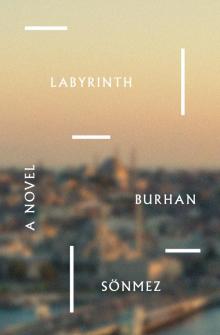 Labyrinth
Labyrinth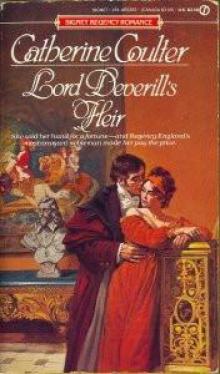 Lord Deverill's Heir
Lord Deverill's Heir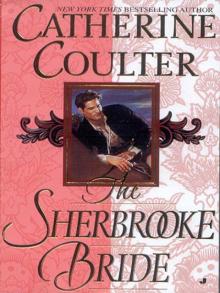 The Sherbrooke Bride
The Sherbrooke Bride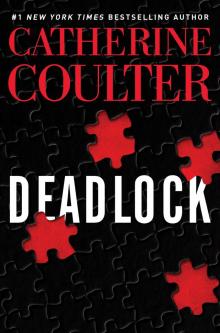 Deadlock
Deadlock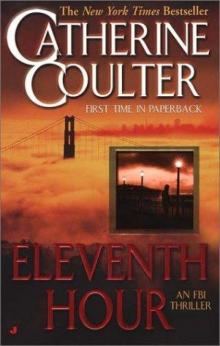 Eleventh Hour f-7
Eleventh Hour f-7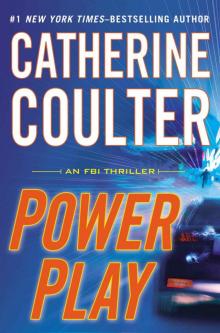 Power Play (An FBI Thriller)
Power Play (An FBI Thriller)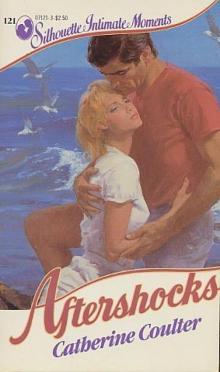 Aftershocks
Aftershocks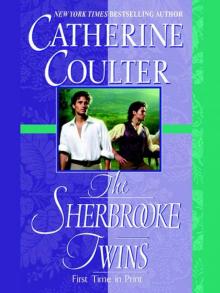 Sherbrooke Twins tb-8
Sherbrooke Twins tb-8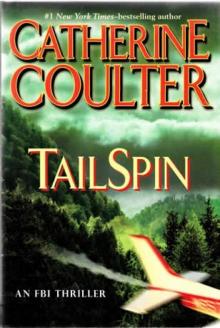 Tail Spin ft-12
Tail Spin ft-12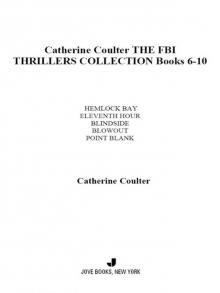 The FBI Thrillers Collection
The FBI Thrillers Collection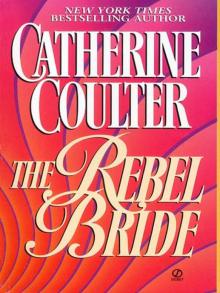 The Rebel Bride
The Rebel Bride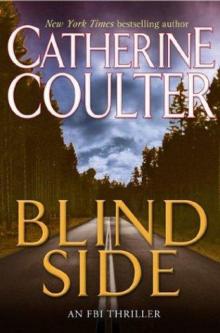 Blindside f-8
Blindside f-8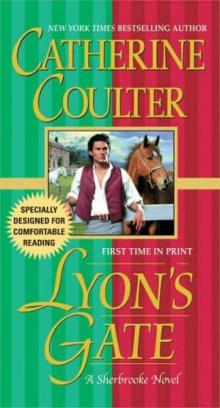 Lyons Gate tb-9
Lyons Gate tb-9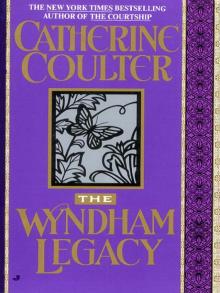 Wyndham Legacy
Wyndham Legacy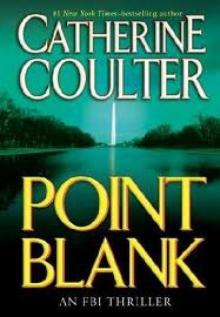 Point Blank f-10
Point Blank f-10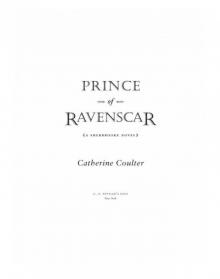 The Prince of Ravenscar
The Prince of Ravenscar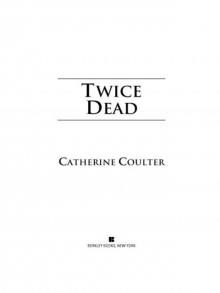 Twice Dead
Twice Dead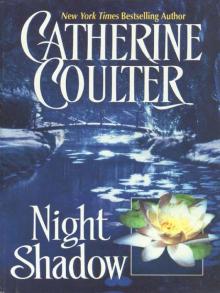 Night Shadow
Night Shadow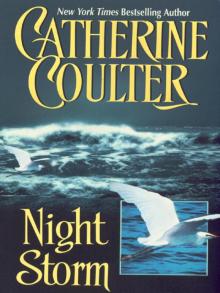 Night Storm
Night Storm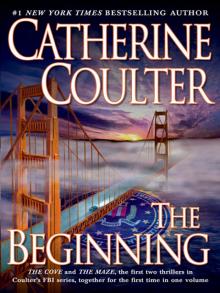 The Beginning
The Beginning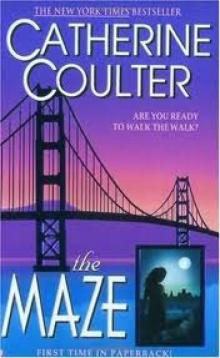 The Maze ft-2
The Maze ft-2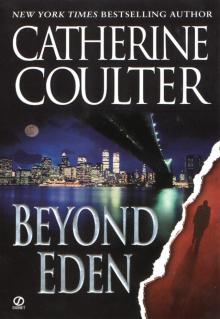 Beyond Eden
Beyond Eden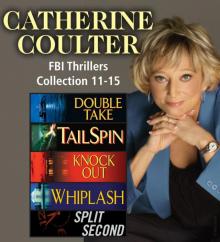 The FBI Thrillers Collection: Vol 11-15
The FBI Thrillers Collection: Vol 11-15 FALSE PRETENSES
FALSE PRETENSES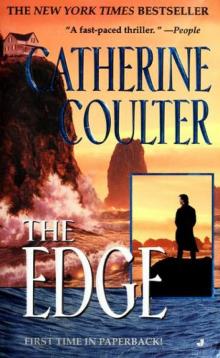 The Edge f-4
The Edge f-4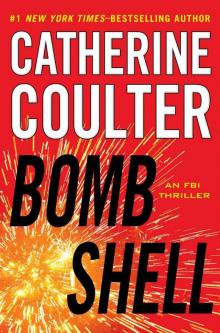 Bombshell (AN FBI THRILLER)
Bombshell (AN FBI THRILLER)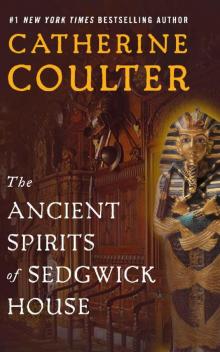 The Ancient Spirits of Sedgwick House (Grayson Sherbrooke's Otherworldly Adventures Book 3)
The Ancient Spirits of Sedgwick House (Grayson Sherbrooke's Otherworldly Adventures Book 3)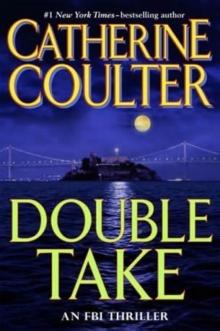 Double Take ft-11
Double Take ft-11 The Heir
The Heir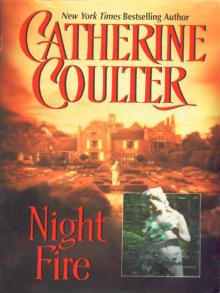 Night Fire
Night Fire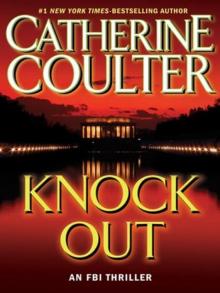 KnockOut ft-13
KnockOut ft-13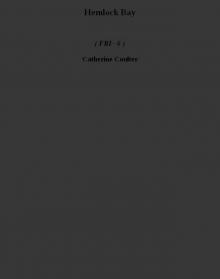 Hemlock Bay f-6
Hemlock Bay f-6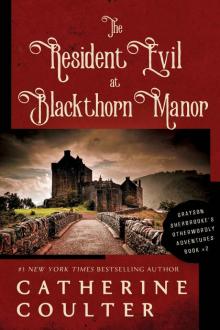 The Resident Evil at Blackthorn Manor (Kindle Single) (Grayson Sherbrooke's Otherworldly Adventures Book 2)
The Resident Evil at Blackthorn Manor (Kindle Single) (Grayson Sherbrooke's Otherworldly Adventures Book 2)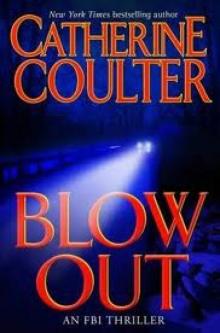 Blowout ft-9
Blowout ft-9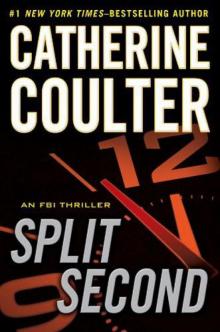 Split Second f-15
Split Second f-15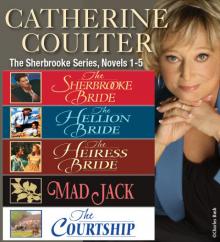 The Sherbrooke Series Novels 1-5
The Sherbrooke Series Novels 1-5 Impulse
Impulse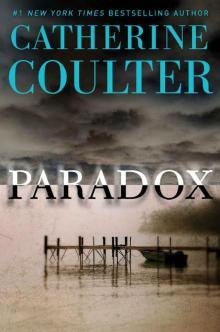 Paradox (An FBI Thriller Book 22)
Paradox (An FBI Thriller Book 22)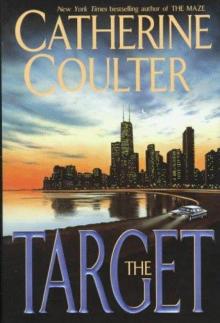 The Target f-3
The Target f-3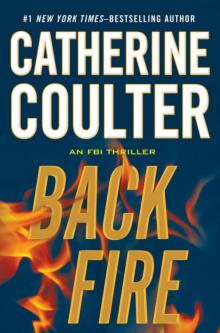 Backfire fst-16
Backfire fst-16 Born To Be Wild
Born To Be Wild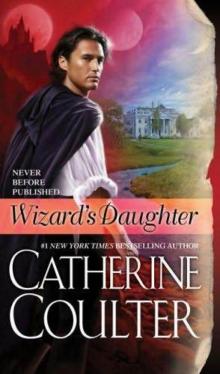 Wizards Daughter tb-10
Wizards Daughter tb-10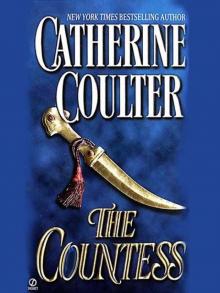 The Countess
The Countess